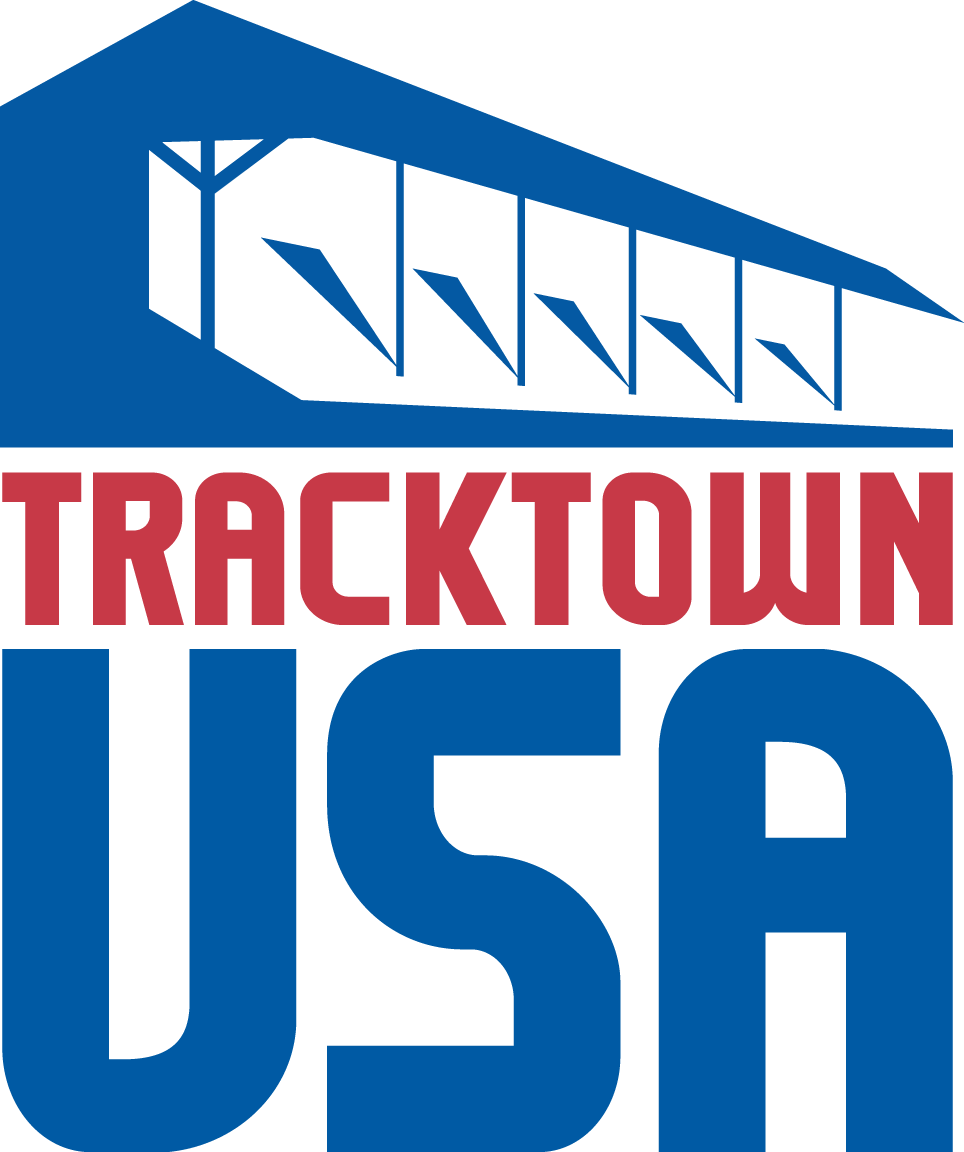Olympic Day guests pave the way for future generations
Madeline Manning Mims poses for a photo with young fans at Olympic Day on Saturday. Photo by Kate Walkup
By Kate Walkup
Youth currently participating in track and field or other sports may not understand the importance or impact Title IX has had on their athletic careers and the vital role the athletes who came before them played in making an even playing field for all. However, four female track athletes shared their stories of triumph and hardship throughout their athletic careers with the up-and-coming generation of athletes on Saturday.
Madeline Manning Mims, Chandra Cheeseborough, Mechelle Lewis Freeman and Nicole Commissiong lined the panel at TrackTown USA’s Olympic Day, inspiring a group of K-8th graders and their parents just before the women’s NCAA championship finals got underway at Hayward Field.
In 1968, Manning Mims won her first gold medal—in an event she had no intention of even trying. Manning Mims ran her first 800 meters in a competition when she was in high school. At a meet in Canada, the other girls decided to run the 800 instead of the 400 meters, which was the race that had been originally scheduled to occur. Despite the change in event, Manning Mims proceeded to break the 800 world record.
“The myth in women’s sports when it came to women was that women of color were not able to run longer distances because they were built with fast twitch muscles,” Manning Mims said. “They didn’t expect me to win. That wasn’t even in their mind.”
Manning Mims went on to participate in the 1972 and 1976 Olympics before the US boycotted the 1980 Olympics.
Over 50 years separated the two American gold-medal performances in the 800 meters at the Olympic Games. Manning Mims won gold in 1968, followed by Athing Mu in 2021.
“I cried, I was so happy [when Mu won],” Manning Mims said.
Cheeseborough made her Olympic debut at the 1976 Olympics and continued her Olympic career through the 1984 Games. In Los Angeles, Cheeseborough made history when she became the first woman to win gold in both relays.
Relays had always been one of Cheeseborough’s specialties. When Cheeseborough was in middle school, she participated in the boys’ relay, holding off the other teams’ anchor.
“I decided to run the 400 just to work on my 200 for the Olympic Games, and I broke an 11-year-old record,” Cheeseborough said. “So, that’s how I got into running the 400.”
As a former Oregon Duck and PAC-10 (12) champion, Commissiong has spent endless hours at Hayward Field training and competing. The 1993 Canadian Games runner-up in the 200 meters and 400 meters now works as the Chief Civil Rights Officer and Title IX Coordinator for her alma mater.
The most recent Olympian of the group, Lewis Freeman, competed in the 2008 Olympic Games and has continued to work to create more opportunities for rising athletes in the sport of track and field. Lewis Freeman has used her expertise and knowledge that she’s gained from competing in the sport as a way of educating the new generation of athletes about gender inequities that once existed and have been erased since Title IX, as well as those areas that still need to change.
Through the four track athletes’ stories, young girls looking to be the next 800 stars were able to hear about what their predecessors had to go through in order to make track and field a place where they too can compete on the track and race for records and gold medals.
Whether the kids in the audience go on to become the next American to win the 800 at the Olympic Games, choose to pursue a career that promotes equality throughout athletics much like the paths Lewis Freeman and Commissiong took, or simply appreciate sports as a form of entertainment, one thing is for certain—the ability to participate in their respective sports will no longer be taken for granted.

